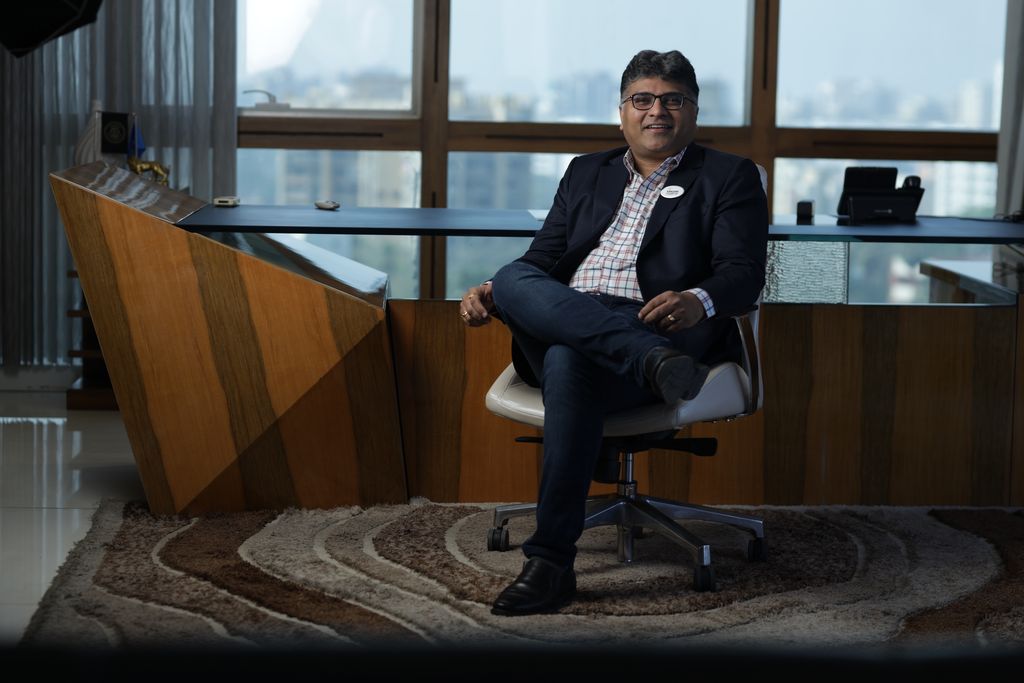
‘Made in India’ may soon be etched on the World’s Ships: Supal Shah
MUMBAI: For decades, the Indian flag fluttered quietly in world shipping registers, overshadowed by Panama, Liberia and the Marshall Islands. Today, it’s at the centre of a remarkable turnaround. Within months, global heavyweights CMA CGM, Maersk and MSC have all signalled intent to register vessels under the Indian flag – an industry first that could rewrite the global shipping order. “The phrase ‘Made in India’ may soon extend to the very ships that carry global trade itself.” says Mr. Supal Shah, CEO of Sarjak Container Lines Pvt Ltd. (SCL). “For India, this moment is more than symbolic, it’s structural,” he adds.
A Policy Wave Unlocks Sea of Potential
The reflagging surge is underpinned by the Government of India’s ₹ 70,000-crore shipbuilding and port-modernisation package and a series of liberalised vessel-registration reforms. By declaring shipbuilding and shipyards as “infrastructure,” policymakers have unlocked long-term credit, tax incentives, and easier access to capital. Projects such as the ₹ 76,000-crore Vadhwan Port and a string of non-major port expansions aim to make India not just a port of call, but a port of origin.
Foreign lines see opportunity in this shift. CMA CGM has placed a ₹ 3,000-crore order for six LNG-powered 1,700 TEU ships at Cochin Shipyard. Maersk has re-flagged two feeder vessels, Maersk Vilnius (1,810 TEU) and Maersk Vigo (1,740 TEU) from Singapore to India, citing “robust economic fundamentals and progressive maritime reforms.” MSC has since confirmed similar plans.
Why Reflagging Benefits Go Far Beyond Symbolism
Under India’s cabotage rules, foreign-flag vessels cannot move cargo between Indian ports. Indian-flagged ships can, giving reflagged carriers direct access to the country’s fast-growing coastal and first-/last-mile trade. The Competition Commission of India has added further incentive, linking continued antitrust immunity for vessel-sharing agreements to the deployment of at least 5 % of capacity on Indian-flagged tonnage. “The combination of carrot and stick has made India’s registry more attractive than at any point in recent memory” notes Shah.
A Move Beyond Geopolitics
While Red Sea and South China Sea disruptions have prompted carriers to diversify risk, Shah argues that India’s momentum is not reactive, it’s structural. “India’s emerging role in shipbuilding, repair, crewing and financing is transforming it from a manpower hub into a maritime ecosystem.” he says. “If executed well, we could evolve from being the world’s largest supplier of seafarers to a ship-owning nation of consequence.”
A New Chapter at Sea
As global carriers register vessels under the Indian flag, the ripple effects will reach deep into domestic industry, stimulating demand for local spares, dry-dock services and shipyard orders. That, in turn, could create new employment and accelerate India’s ambition to become a regional shipbuilding hub by 2030. “For Indian shipyards, this is a commercial inflection point.” adds Shah. “Flagging creates the pipeline; building creates the capability.” With the world’s top shipping companies now hoisting the Indian tricolour at their stern, the country’s maritime transformation appears no longer aspirational but underway.
About Sarjak Container Lines Pvt Ltd.
Sarjak Container Lines Pvt Ltd is India’s leading project logistics and container shipping specialist, headquartered in Mumbai and serving 84 countries through 275 ports worldwide. Founded in 2003 with a focus on over-dimensional (ODC/OOG) cargo, Sarjak revolutionised the industry by investing in a dedicated fleet of flat-racks and open-top containers for complex infrastructure and heavy-lift projects. Today, Sarjak delivers end-to-end logistics solutions, from vessel chartering and break-bulk movements to road/rail stuffing, customs clearance, and on-site delivery, backed by a global network, advanced systems, and specialised equipment. Its mission is to provide innovative, digitally enabled, customer-centric project-cargo logistics while fostering sustainable growth and trusted partnerships.

